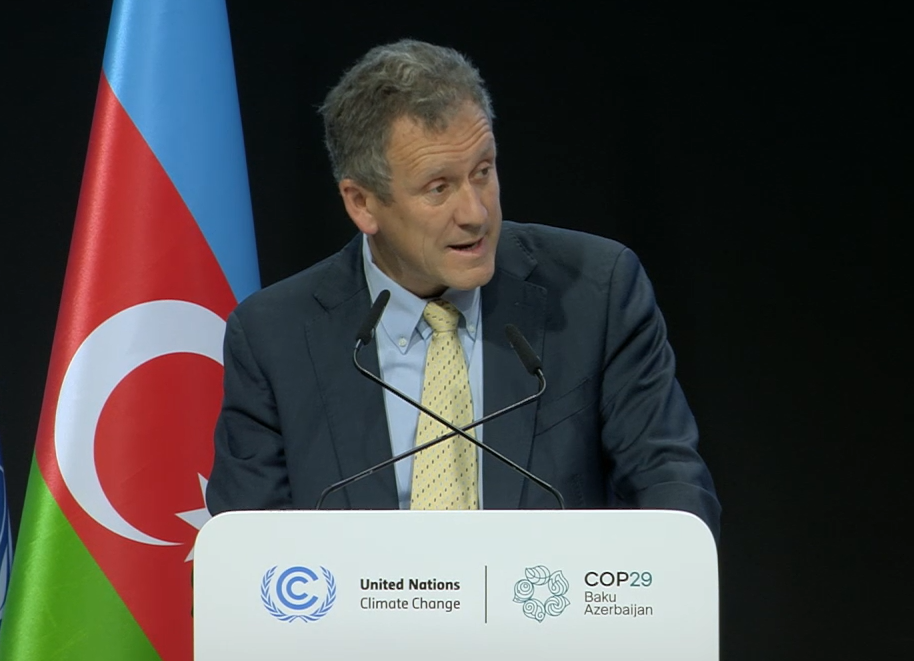BAKU, Azerbaijan, November 20. Chile is strongly committed to climate action, said the country's Minister of Transport Juan Carlos Muñoz as he addressed the COP29 summit in Baku, Trend reports.
In his national statement, Muñoz outlined Chile’s ambitious plans for reducing emissions and transitioning to green energy, emphasizing the importance of a holistic, inclusive approach to addressing climate change.
"Chile is committed to climate ambition. We are one of the few developing countries that has set the goal of achieving carbon neutrality and resilience by 2050," Muñoz stated. He explained that the country’s climate change framework law mandates that all levels of government integrate climate considerations into their policies. This includes developing strategic plans, regulations, and economic instruments aimed at reducing greenhouse gas emissions.
Muñoz highlighted Chile’s vulnerability to climate change, pointing to the prolonged droughts, wildfires, and floods that have disproportionately affected the country’s poorest populations. "We have implemented inclusive policies with a focus on a just transition," he said, stressing the importance of addressing climate challenges while ensuring fairness for all communities.
As part of its long-term climate strategy, Chile aims to achieve carbon neutrality by 2050, with specific sectoral mitigation and adaptation plans already underway. "This integrated government approach allows Chile to have a firm state climate policy, based on science and supported by multiple instruments to ensure that our national goals are met," he explained.
Turning to the transport sector, Muñoz outlined Chile’s comprehensive plan to reduce emissions and improve quality of life. The plan includes a focus on electromobility, mass public transport expansion, and the development of railway infrastructure. "These actions aim not only to reduce greenhouse gas emissions but also to decrease local pollution and improve people's quality of life," he noted.
A key component of Chile's climate strategy is its commitment to making 100% of public transportation zero emissions by 2040. Muñoz pointed to the National Public Transport Subsidy Law, which allocates nearly $1.5 billion annually to support the transition to electric public transport. "This law provides stability and predictability for planning and investment in sustainable public transport projects nationwide," he said. The law was recently extended until 2032, ensuring continued financial support for the country’s green transport ambitions.
Chile has already made significant progress, with Santiago’s electric bus fleet now the largest urban fleet outside of China, numbering 2,500 buses. "An additional 1,200 buses will arrive in the next 18 months," Muñoz added. The country is also making substantial investments in its metro and railway networks, with the Santiago Metro set to expand by 75 kilometers.







